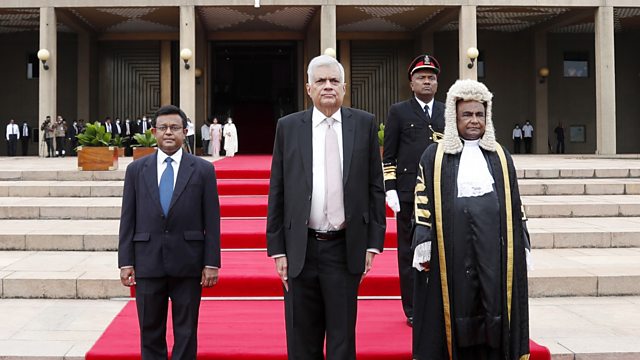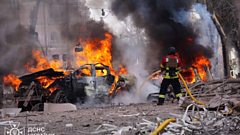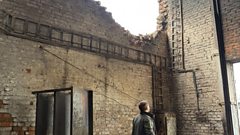Sri Lanka: Is there a risk of military rule?
One analyst tells us the military ÔÇśwould take the upper handÔÇÖ if political instability continues under new president Ranil Wickremesinghe.
Sri Lanka's Ranil Wickremesinghe has been sworn in as president, amid hopes that he will pull the country out of its economic suffering.
The 73-year-old took his oath at the tightly-guarded parliament complex on Thursday.
Mr Wickremesinghe - the former prime minister - is seen as unpopular with the public, but some protesters have said they will give him a chance.
Sri Lanka is currently in the grip of mass unrest over an economic crisis.
Many blame the Rajapaksa administration for mishandling the crisis and see Mr Wickremesinghe as part of the problem - but there were few demonstrations on the streets the day after Mr Wickremesinghe won the parliament vote.
Asanga Abeyagoonasekera is a political analyst from Sri Lanka who is a senior fellow at the Millennium Project in Washington DC. He told Newsday that if Mr Wickremesinghe fails to ÔÇťestablish political stability by aligning with the protestorsÔÇŁ and getting a grip on the economic crisis, then ÔÇťthe political instability will continueÔÇŁ which could ÔÇťlead into a stronger military ruling.ÔÇŁ
(Picture: A media handout photo shows Ranil Wickremesinghe (C) at his swearing-in ceremony in Colombo, Sri Lanka, 21 July 2022. Credit: EPA/Sri Lankan Parliament Media Unit)
Duration:
This clip is from
More clips from Newsday
-
![]()
'I immediately called my mother, I told her that I was alive'
Duration: 02:21
-
![]()
'People on both sides have suffered enough'
Duration: 04:44






